Is There a Statute of Limitations on Traffic Tickets
You walk to your car and then find that you have a ticket. You are torn between paying the fine due or waiting for the ticket to expire. But you're not sure whether there ? A straight answer would be yes. But the laws intensely depend on your state of residence. There comes a time when no prosecutor is allowed to charge you for a ticket issued against you. However, it's easier said than done, as it's rare to hide for years without getting stopped by traffic patrol. But if you have managed to, you may want to know if the statute of limitation on your ticket has expired or whether it's close to.
Once you get a ticket in New York City, California, or while hunting for extreme entertainment in Las Vegas, it is advisable to pay for your tickets immediately to avoid any inconveniences on a later date. Does this mean you have to pay for the ticket? Actually, no. You can try and clarify your situation to the judge after pleading not guilty during the court date or contest the ticket immediately.
Although there are procedural hurdles involved, do not worry. The World's First AI Consumer Champion is here to help you. DoNotPay will help you fight the traffic ticket and win, whether you are in Los Angeles or any other city.
Statute of Limitations on Various Types of Traffic Tickets
Before delving into , it is better to demystify it further. Take an example of a road accident; a statute of limitation, in this case, would be the time of the accident and the time allowed to file for the claim; if that time expires, you can no longer file for the claim. However, for traffic tickets, this time is the period within which you committed the traffic offense and the time the prosecutor can charge you with the crime. Beware, though; traffic citations never expire.
A typical traffic ticket can stay on your record for about three years. Despite this, if you get pulled over by an officer for a moving violation, and they hand you the ticket asking you to sign it, and you sign it, the statute of limitations gets nullified. The moment you sign the ticket, you acknowledge the offense and are formally charged.
| Statute of Limitations on a Speeding Ticket | The time frame contrasts depending on the state. For example, in Washington, the statute of limitation for a speeding ticket is three years.
If a traffic officer gives you a traffic ticket, and you sign it, the statute of limitation is no longer effective. |
| Statute of Limitations For Moving Violations | Comparably, traffic offenses for other moving violations never go away, at least in most states. When the traffic officer hands you the traffic ticket, after which you sign it, you are officially charged with a traffic offense. |
Got Traffic Tickets? Here Is What to Do
Once you get a traffic ticket, there are three actions you can take to address the issue. They include:
- Pay the fines you owe the state.
- You could go to court for a mitigation hearing and state your case. This hearing occurs when you agree to commit the traffic violations, but you can explain your situation.
- Deny the citation and request for a contested hearing to challenge the ticket. The contested hearing can be in person, or you can draft a Trial Declaration in writing requesting to state your case in writing.
Note: Ignoring your ticket citation should never be an option, though. In some states like Washington, if you ignore your ticket violation for long, the citation is converted into a civil infraction. Instead of charging you with the ticket charge, the state will charge you with a civil lawsuit, which may result in extreme fines with a possible ten-year stay on your record.
Why You Need to Contest a Traffic Ticket
The US Constitution grants any American citizen a right to fight any criminal allegations filed against them under the sixth amendment. Comparably, traffic citations are criminal infractions that you can defend yourself against.
Here are some of the reasons for disputing any traffic ticket:
- Maintaining Your Driving Record Reputation
Pleading guilty to a traffic citation and paying the ticket will always show up on your driving record, which may take about three to five years to be erased, varying from state to state. On the other hand, pleading not guilty and contesting the traffic citation may be the solution to having the offense erased.
- Avoid Losing Your Driving License
Committing a traffic violation attracts penalties in the form of points. Some traffic citations can carry points ranging from two to six points, depending on the offense. If your points reach twelve in two years, your license may be suspended. Therefore, not contesting the traffic ticket may cost you later on.
- Traffic Violations May End Up Raising Your Insurance Rates
The more points you accrue on your driving record attract an increase in your insurance premium rates.
Use DoNotPay to Fight Your Traffic Ticket Completely Online in Minutes
DoNotPay's rule is that no one deserves to pay what they shouldn't. An article by BBC news mentioned the success of DoNotPay in handling traffic tickets, having challenged over 160 000 tickets successfully. Yours could be the next we take on.
All you have to do is follow these five simple steps:
- Log-in to DoNotPay and go to the Ticket Disputes category. Select the correct product based on your traffic ticket.
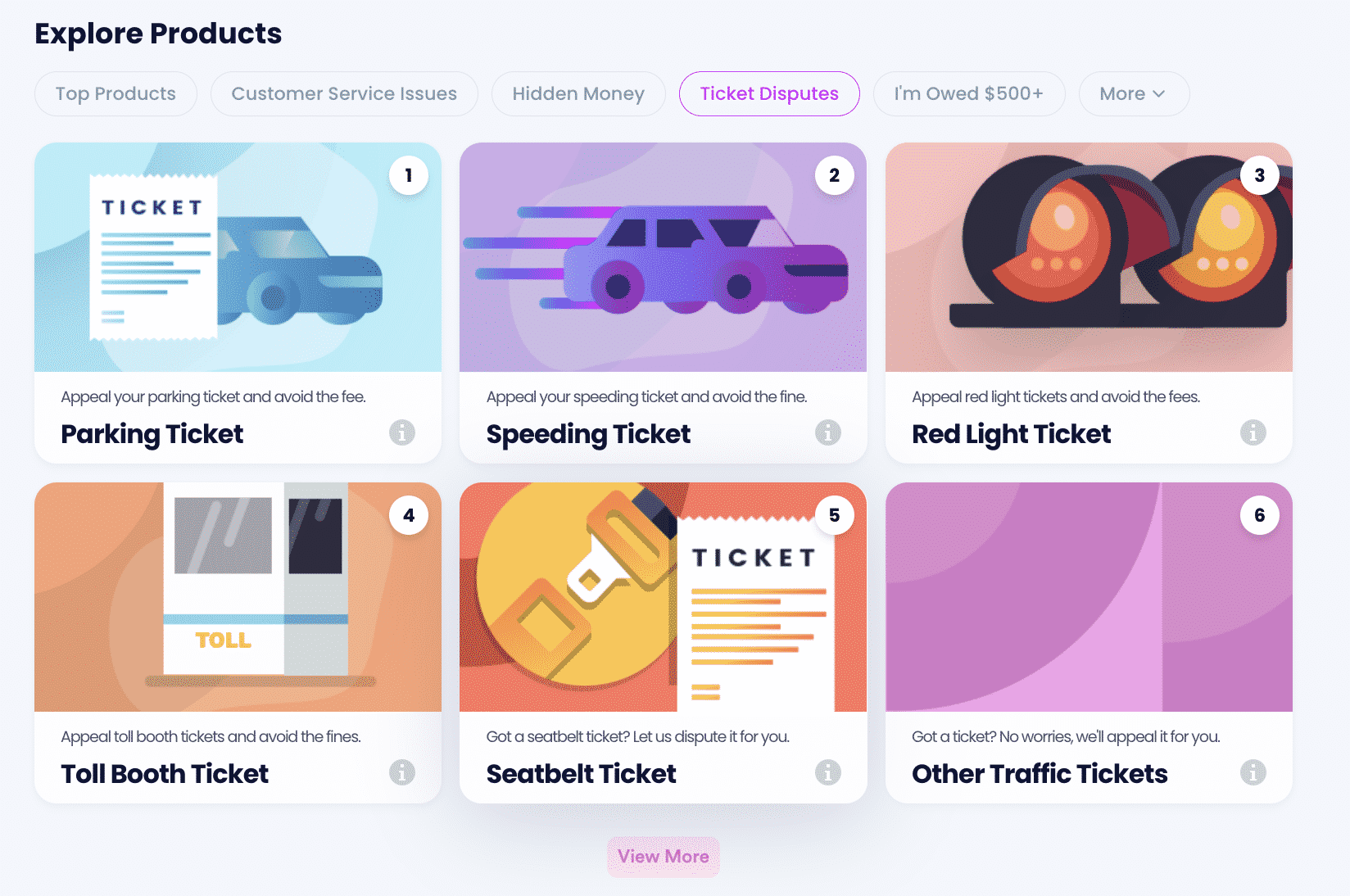
- Upload a photo of your citation.
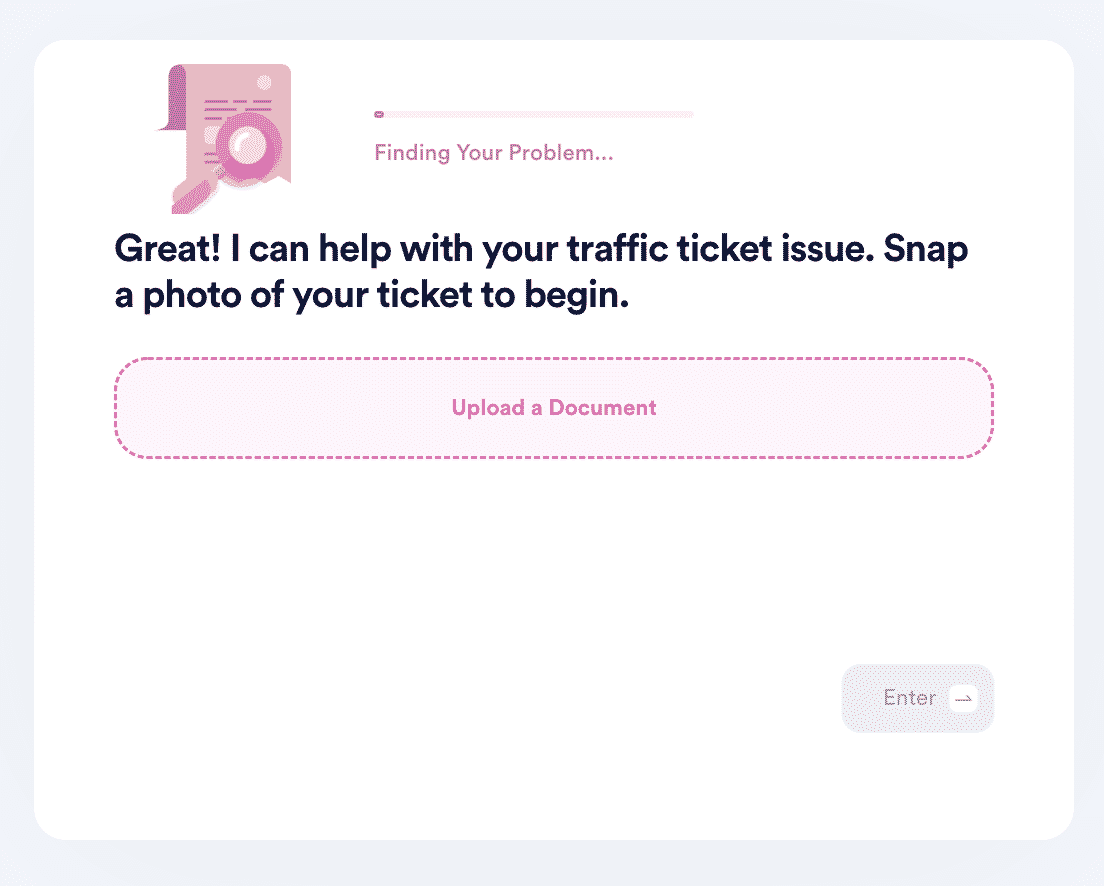
- Provide us with some details on why you believe the citation issued is a mistake.
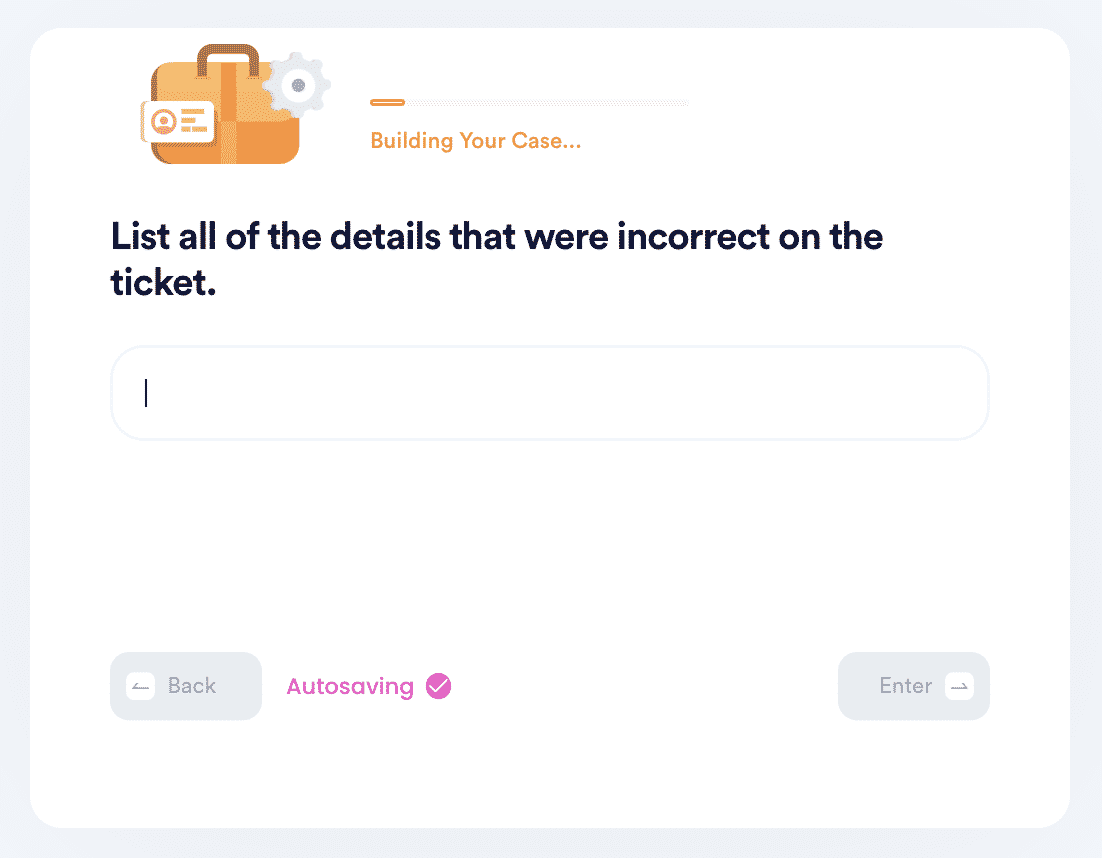
- Select whether or not you want the letter mailed to the traffic ticket issuer on your behalf!
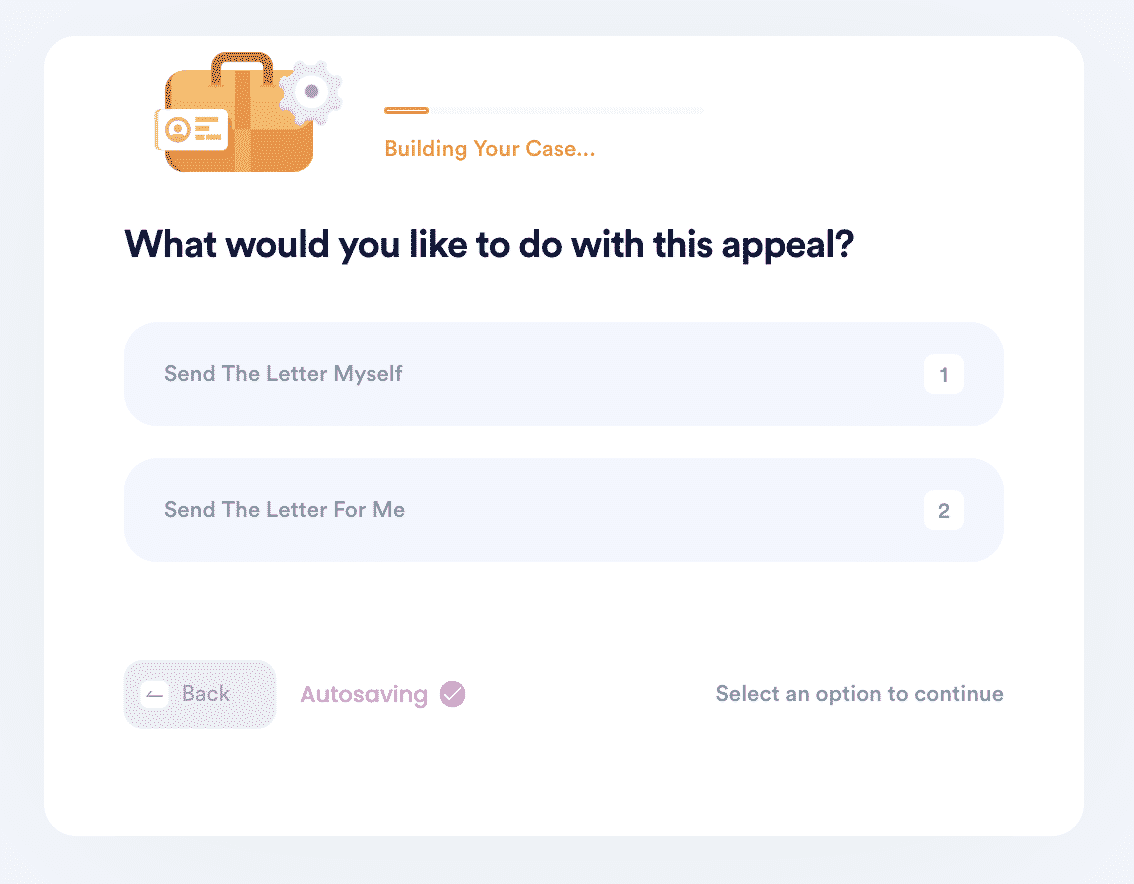
- That’s it! You’ll receive an appeal letter that contains state vehicle codes to boost your case.
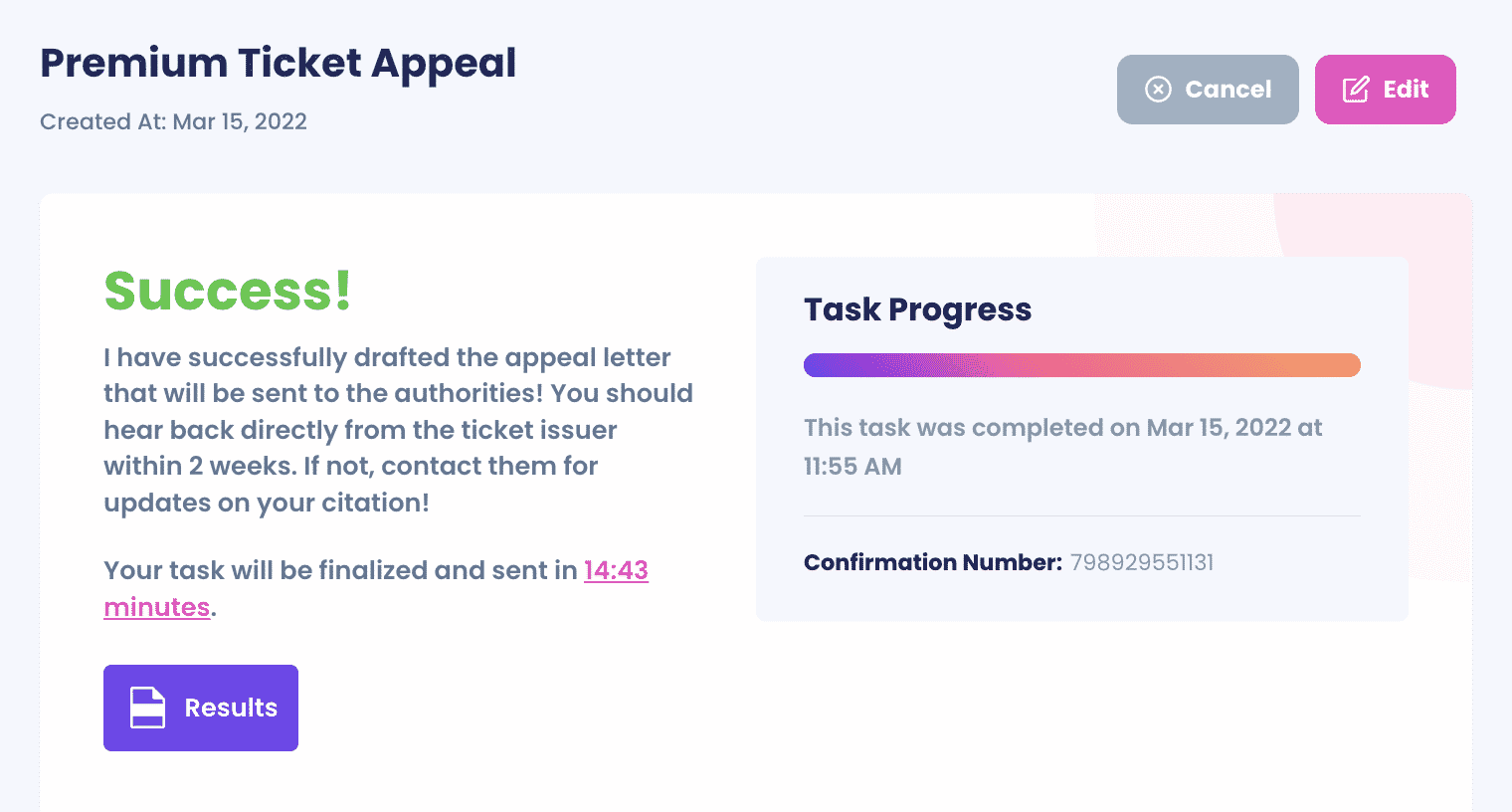
And you are done! Keep a lookout for your traffic ticket issuer's response to know if you won.
Access More DoNotPay Services
DoNotPay will similarly help you effortlessly dispute seatbelt tickets in any city, as it will aid you in renewing your car registration details. Other services you can find helpful include;
- Complaining against poor services or products of any company
- Claim your insurance policy
- Appeal against parking tickets
- Filling a police report
- Getting aid when in need
DoNotPay has a lot to offer. and enjoy having a reliable AI Consumer Champion to make all your tasks quicker and easier to accomplish.
 By
By